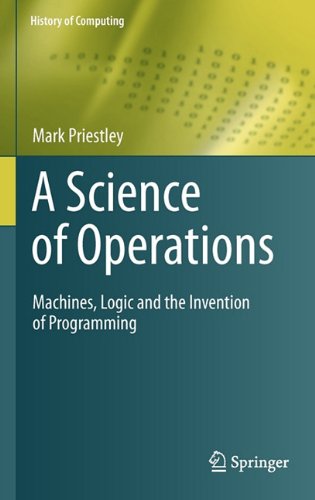

Most ebook files are in PDF format, so you can easily read them using various software such as Foxit Reader or directly on the Google Chrome browser.
Some ebook files are released by publishers in other formats such as .awz, .mobi, .epub, .fb2, etc. You may need to install specific software to read these formats on mobile/PC, such as Calibre.
Please read the tutorial at this link: https://ebookbell.com/faq
We offer FREE conversion to the popular formats you request; however, this may take some time. Therefore, right after payment, please email us, and we will try to provide the service as quickly as possible.
For some exceptional file formats or broken links (if any), please refrain from opening any disputes. Instead, email us first, and we will try to assist within a maximum of 6 hours.
EbookBell Team

4.3
48 reviewsToday, computers fulfil a dazzling array of roles, a flexibility resulting from the great range of programsthat can be run on them.
A Science of Operations examines the history of what we now call programming, defined not simply as computer programming, but more broadly as the definition of the steps involved in computations and other information-processing activities. This unique perspective highlights how the history of programming is distinct from the history of the computer, despite the close relationship between the two in the 20th century. The book also discusses how the development of programming languages is related to disparate fields which attempted to give a mechanical account of language on the one hand, and a linguistic account of machines on the other.
Topics and features:
This fascinating text offers a new viewpoint for historians of science and technology, as well as for the general reader. The historical narrative builds the story in a clear and logical fashion, roughly following chronological order.